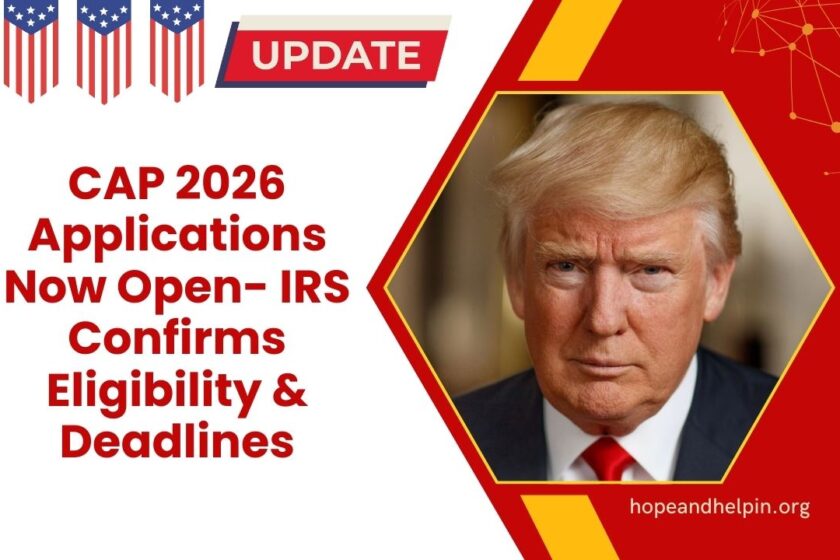The IRS has officially confirmed that applications for the Compliance Assurance Process (CAP) 2026 cycle are now open as of August 2025. CAP, introduced in 2005, is a forward-looking initiative designed to foster transparency between the IRS and large corporate taxpayers.
By resolving potential tax issues before returns are filed, CAP provides corporations with certainty, reduces disputes, and enhances compliance with federal tax laws.
With expanded eligibility criteria and new provisions tied to recent legislation, CAP 2026 is shaping up to be one of the most significant application cycles in the program’s history.
What Is the IRS CAP Program?
The Compliance Assurance Process (CAP) is a voluntary program that allows participating corporations to work closely with the IRS throughout the year. Instead of waiting until after filing for audits, companies resolve potential issues in real time. This not only saves time and resources but also ensures accuracy and confidence in tax reporting.
To qualify, corporations must hold assets of $10 million or more and submit detailed financial records such as audited annual statements and quarterly unaudited reports.
Eligibility Requirements for CAP 2026
For new applicants, the IRS has set clear rules. A corporation must not have more than three fiscal years open for examination as of the first day of its CAP fiscal year. Furthermore, all open years should be reasonably closable within 12 months of entering CAP.
Corporations must also sign a Memorandum of Understanding (MOU) with the IRS, agreeing to the cooperative framework of CAP. Importantly, entities under investigation or litigation with any government agency are not eligible.
CAP 2026 Key Features and Updates
| Category | Details for CAP 2026 |
|---|---|
| Application Period | Open as of August 2025; rolling deadlines through fall |
| Minimum Assets Requirement | $10 million or more |
| Eligible Applicants | Public C Corporations, Private C Corporations (with or without foreign ownership), Private Equity firms |
| Financial Documentation | Audited statements (GAAP, IFRS, or IRS-approved methods) + quarterly unaudited statements |
| Legislative Impacts | Adjusted for IRA and CHIPS Act provisions (e.g., CAMT, stock buyback excise tax, clean energy credits) |
| Open Year Rule | Max of 3 open years; exceptions for unresolved IRA or CHIPS tax issues |
| Key Benefits | Certainty before filing, reduced disputes, faster resolution of tax matters |
Legislative Impacts: IRA and CHIPS Acts
The Inflation Reduction Act (IRA) and the CHIPS Act have introduced significant new tax rules, including the Corporate Alternative Minimum Tax (CAMT), excise taxes on stock buybacks, and multiple clean-energy credits.
These changes complicate tax compliance, making CAP’s real-time resolution approach even more valuable. The IRS has announced that open years extended solely due to unresolved IRA or CHIPS issues will not count toward eligibility restrictions, offering relief to impacted corporations.
Financial Reporting Requirements
Applicants must submit audited financial statements with unqualified opinions from independent auditors. The reports must reconcile net income with Schedule M-3, Line 4(a) to reflect consolidated global net income.
Related-entity or parent company statements will not be accepted. This ensures transparency and accountability from the applying corporation itself.
Quarterly unaudited statements must also be filed, giving the IRS ongoing visibility into the company’s operations and financial health.
The opening of CAP 2026 applications marks a pivotal moment for corporations aiming to strengthen compliance while reducing the uncertainty of tax disputes.
With the IRS introducing new eligibility rules, exceptions for legislative impacts, and stricter financial documentation standards, this cycle emphasizes transparency and proactive cooperation.
Corporations meeting the criteria should act quickly to apply and position themselves for smoother tax management under this innovative program.
FAQs
Who can apply for CAP 2026?
Publicly traded C corporations, privately held C corporations (including those with foreign ownership), and private equity firms meeting eligibility rules.
Does CAP participation eliminate audits?
Not entirely. Instead, CAP shifts audits into a real-time review process, preventing disputes from arising after filing.
What happens if my corporation is under investigation?
Entities involved in government investigations or litigation are not eligible for CAP 2026 participation.

